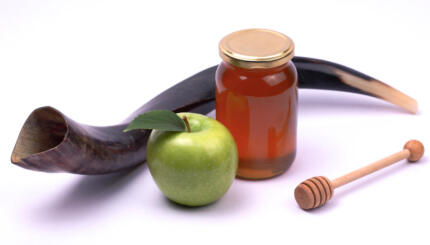Purim begins at sunset on Saturday, March 19, 2011. Its celebration continues through sunset on Sunday, March 20, 2011.
What is Purim?
Purim is the holiday that celebrates how the Jews of Persia were saved from extermination at the hands of Haman, an evil advisor to the king. Purim’s heroine is Queen Esther, who persuaded her husband, the king, to save the Jews and punish Haman instead. The whole story appears in the Bible, in the Book of Esther, also called Megillat Esther or just “the megillah.”
What are some Purim customs and practices?
The megillah is read twice over Purim. It is a custom for some, especially children, to dress up in costumes. During the reading of the megillah, when Haman’s name is said, people jeer and make noises with graggers (noisemakers). It is also traditional to hand out mishloach manot, or gift baskets, to friends and loved ones, and to make special donations to the poor.
• Make your own creative mishloach manot basket
• Do-it-yourself gragger art project

Help us keep Jewish knowledge accessible to millions of people around the world.
Your donation to My Jewish Learning fuels endless journeys of Jewish discovery. With your help, My Jewish Learning can continue to provide nonstop opportunities for learning, connection and growth.
 What foods are traditionally eaten on Purim?
What foods are traditionally eaten on Purim?
Purim celebrations are typically heavy on the junk food. Here are some traditional Purim recipes:
• Hamantaschen
• Meat Kreplach
• Candy Infused Vodka
gragger
Pronounced: GROGG-er, Origin: Yiddish, a noisemaker used during the communal reading of the megillah, the Book of Esther, on the holiday of Purim. When the reader speaks the name of Haman, the congregation tries to drown out the evil name using noisemakers and booing.

Help us keep Jewish knowledge accessible to millions of people around the world.
Your donation to My Jewish Learning fuels endless journeys of Jewish discovery. With your help, My Jewish Learning can continue to provide nonstop opportunities for learning, connection and growth.
megillah
Pronounced: muh-GILL-uh, Origin: Hebrew, meaning “scroll,” it is usually used to refer to the scroll of Esther (Megillat Esther, also known as the Book of Esther), a book of the Bible traditionally read twice during the holiday of Purim. Slang: a long and tedious story or explanation.

Help us keep Jewish knowledge accessible to millions of people around the world.
Your donation to My Jewish Learning fuels endless journeys of Jewish discovery. With your help, My Jewish Learning can continue to provide nonstop opportunities for learning, connection and growth.
mishloach manot
Pronounced: meesh-LOE-akh mah-NOTE, Origin: Hebrew, literally “sending portions to one another.” A phrase taken from the Megillah [Book of Esther] that commands the Jewish community to give small packages of food or gifts to friends on the day of Purim.

Help us keep Jewish knowledge accessible to millions of people around the world.
Your donation to My Jewish Learning fuels endless journeys of Jewish discovery. With your help, My Jewish Learning can continue to provide nonstop opportunities for learning, connection and growth.
Purim
Pronounced: PUR-im, the Feast of Lots, Origin: Hebrew, a joyous holiday that recounts the saving of the Jews from a threatened massacre during the Persian period.

Help us keep Jewish knowledge accessible to millions of people around the world.
Your donation to My Jewish Learning fuels endless journeys of Jewish discovery. With your help, My Jewish Learning can continue to provide nonstop opportunities for learning, connection and growth.


